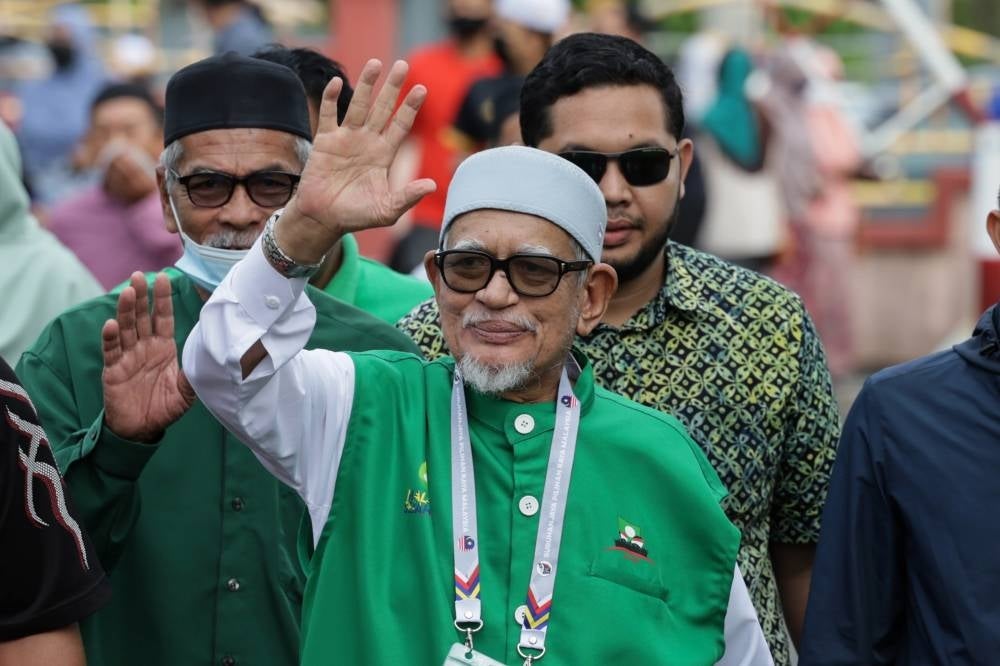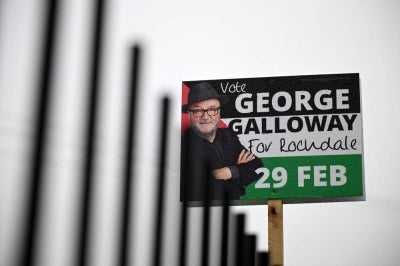How Pas won the hearts of those who crave stability and moderation
CHECKERED REALITY
SYAZA SHUKRI
Malaysia has a democratic electoral system in which power returns to the people every four or five years to choose the make-up of our government.
From a previously dominant-party system, we are moving towards a multi-party system in which different coalitions now have the possibility to form the government.
Since 2018, we have had five configurations running the government – Barisan Nasional (BN), Pakatan Harapan (PH), Perikatan Nasional (PN), Keluarga Malaysia, and the current Anwar Ibrahim-led Unity Government.
Though moving towards a mature and consolidated democracy is lauded, it undeniably becomes harder to determine the true representation of the people when there are many competing voices.
And due to Malaysia’s winner-takes-all system, the seats won by a party may not even reflect the votes received.
In the absence of a simple majority, political negotiation and compromises come into the picture and this makes things murkier.
In the recently concluded general election, two coalitions came out almost neck-to-neck: PH and PN. Both coalitions rightfully claim to represent the people.
In truth, each coalition only represents a segment of Malaysian society.
A government of one without the other would definitely leave half of the electorate upset.
Unfortunately for the mostly-Malay supporters of PN, and specifically for Pas voters, their coalition of choice is not part of the government despite coming in second place.
This does not seem fair to them.
However, in a healthy democracy, a strong and formidable opposition is just as important as the ruling coalition as they play the vital role of checking the government.
If we are to look at Pas’s long history, it is not a stretch to say that the party is equipped for this very important role.
It is after all a pragmatic political party.
Pas has been in Malaysia’s political scene for seventy-years and thus it is not surprising that it has such an enviable party machinery with massive grassroots support.
Pas has always sought power within the political framework instead of taking illegal measures.
And importantly, for 32 months in the federal government, there were minimal – not absent – attempts by the party to alter Malaysia’s social and legal structure.
Instead of calling them hypocrites, those who crave stability and moderation in Malaysia should acknowledge Pas’ pragmatism.
While the party, as an institution, is relatively pragmatic, the same cannot be said of specific individuals.
Either at the leadership or grassroots, there are those who are adept at politicking.
They took advantage of Malaysia’s present division to gain sympathy and support by hurling statements that are hateful at best, and dangerous at worst.
They utilised this strategy to manipulate people’s basic emotional instincts and attachment towards a certain identity – something any politician is familiar with. Does it justify the more violent nature of their statements? No.
Instead of recounting those statements, both in speeches and written words, the point to be made is that the party took certain measures to either deny inciting hate or distance themselves from irresponsible individuals.
It does appear hypocritical and problematic as the Malay proverb says “terlajak perahu boleh diundur, terlajak kata buruk padahnya”.
More worrisome is that their young and impressionable supporters may take those words at face value and further cause polarisation in an already divided Malaysia.
Yet, credit must be given that the Pas took reactive measures to bring down the heat to a simmer.
Thus, Pas is indeed a pragmatic party that at its core understands Malaysia is a multi-ethnic country. But in order to win elections, they need to paint their opponents as evil and controversially as anti-Islam and anti-Malay.
Nevertheless, since one-third of Malaysian voters chose PN and 14.56 per cent voted for Pas specifically (which is lower than DAP’s and PKR’s vote share), we should accept this as the political will of a significant portion of the people.
Six per cent more voters chose Pas than they did in 2018.
This is a sign that Pas may have something to offer that resonates with the people, especially the Malays.
In a mature democracy, we should not delegitimise Pas nor its supporters by calling them stupid, politically illiterate, or even ‘wrong’.
Democracy is about respecting people’s choices.
Although the unity government does not include PN, the government needs to honour the voices of their supporters and meet them halfway to understand their needs and what appealed them to PN.
We should not abandon them or call them radical for ‘going green’.
They have valid grievances and hopes that were not addressed by previous administrations.
Frankly, most people are against the slightly extreme views held by certain individuals within Pas’ internal structure and not the party per se.
In addition to that is the role of social media as a medium that amplifies these marginal views.
This is what the current government needs to tackle, not Pas as a political party.
Pas, on the other hand, also has to meet the government halfway.
It needs to reduce politicking and instead play its role as an effective opposition in a pragmatic manner.
Stop with the holier-than-thou rhetoric and accusing everyone of being enemies of Islam.
With more than seven decades of experience, Pas can do this, and the logic of democracy may well be the glue that holds this beloved country together.
Syaza Shukri, PhD is an assistant professor of political science at International Islamic University Malaysia.
The views expressed in this article are the author's own and do not necessarily reflect those of Sinar Daily.
Download Sinar Daily application.Click Here!














